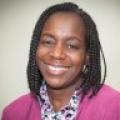Evangelical Christians converged on the nation’s capital for a prayer rally on one of the hottest days of the summer.
With the nation reeling from recent shootings and shocked by news of a terrorist attack in France and an attempted coup in Turkey, speakers at “Together 2016” cited the global events from the stage and spoke of the challenges facing Americans.
“Jesus can heal our nation,” said former Southern Baptist Convention President Ronnie Floyd to applause and cries of “Amen.” “Jesus can heal relationships. America is like a broken bone that needs to be put back into its correct place in order to experience healing.”
With their calls for prayer and unity, speakers generally focused on spiritual rather than concrete solutions to the nation’s problems. The event had been promoted by Pope Francis and noted by President Barack Obama.
Nick Hall, 34, the leader of the Pulse ministry that organized the event focused on millennials, also addressed the crowd in the shadow of the Washington Monument.
“God, we don’t need to hear from some man or some woman,” he said in an opening prayer. “God, we don’t need to hear from some band. We need to hear from heaven today. That’s why we’ve come.”
Others taking the stage included some of the top names in evangelicalism, preachers such as Josh McDowell and Samuel Rodriguez, Christian artist Lecrae, and the group Hillsong United.
Hall, speaking especially to the millennials, said “we want to get the hashtag #JesusChangesEverything trending around the world today.” It remained one of the top trending tweets on Twitter hours after the event.
Many in the multiethnic crowd joined in as contemporary Christian singer Michael W. Smith sang a song about compassion. As people sweated and fanned themselves, wearing beach hats and hovering under umbrellas, they offered bottles of water and welcomed others to the scant shady spots in earshot of the stage’s speakers and songs.
Though cut short due to the heat, the event moved methodically through discussions of how to “reset,” with sermons and prayers calling for repentance, prayer and service. The generation of Facebook and Twitter was urged to put down cellphones and meet people for coffee instead, and to think about people less fortunate than themselves.
“We, the people of the cross, repent of 1.2 million children who will be trafficked around the globe this year while we care more about traffic reports,” prayed Christian author Ann Voskamp, “repent of the 3.1 [million] children under 5 who will die this year because of starvation while we spend $60 billion dollars this year trying to lose weight.”
Some members of the audience prayed for others who they thought needed a divine touch.
Jennifer Yeisley, 31, a nondenominational Christian from Rockville, Md., got on her knees and prayed for Jackie Herbertson, 73, from Brooksville, Fla., who sat in a wheelchair, her toes curled by arthritis.
Though the crowd included many millennials near the stage, there were also families and senior citizens.
“My husband has been praying for a revival in this nation,” Herbertson said of her spouse Bill, adding he had written to congressmen and evangelist Billy Graham. “He wanted to see us all get together and pray. So when we heard about this one … we wanted to come.”
Some of the prayers from the stage were tied to pleas for improved family and race relations.
“Let me die for my home, let me die for my community, let me die for a white man, let me die for a black man, let me die for an Hispanic man, let me die for an Asian man,” prayed gospel artist Kirk Franklin. “Let me get out of the way so you can be God in my life.”
The event follows many other religion-related gatherings — both of believers and nonbelievers — on what is known as the nation’s front lawn. Together 2016 was planned in ways similar to Promise Keepers’ 1997 “sacred assembly” for evangelical Christian men — but this time including women, too.
The program, which included an unusually high number of women speakers for an evangelical gathering, featured Voskamp and poet Amena Brown in a spoken-word segment that featured calls for forgiveness and reconciliation related to racism and privilege.
“We will not be the people who turn a blind eye to injustice,” cried Voskamp.
“We will use our voices, our time, our resources to effect change,” replied Brown.
As the event drew to a close, many pledged to pray more and study the Bible. Charlene Atkins, 49, who attends a mostly black Bible church in Dallas, said she hopes to encourage greater work across racial lines in her church community.
“One of the things that we talked about while out there was helping people who are Christians understand what it means to be as one body in Christ,” she said. “How do we look more like Christ and less like ourselves? I think that would help a lot in the issues that our nation is facing if the church would start to look more like the church.”
Got something to say about what you're reading? We value your feedback!

